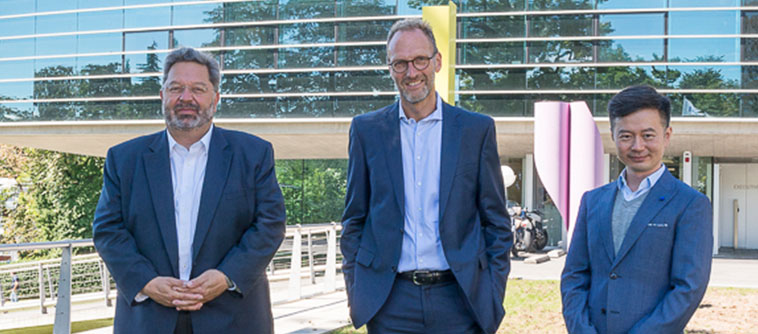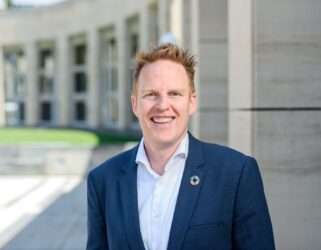In this exclusive video interview with IMD President Jean-François Manzoni, former LEGO Group CEO Jørgen Vig Knudstorp offered valuable insights for executives and companies seeking ways to prepare for and successfully navigate future crises, based on principles that inspired the Group’s turnaround 15 years ago.
Knudstorp said the Danish group’s ingrained capacity to deal with unanticipated events, the flexibility to reset and adjust strategy quickly, re-plan the year and to engage its audience via its digital channels lay behind its successful first-half results, which saw double-digit growth in sales and profits.
“The LEGO branded entities have shared a set of principles of putting people first – staff and customers, taking care of safety first and all, and then securing business continuity,” he explained. “And there, I think we have seen the benefit of not what has been done over three to six months, but what has been done over long periods of time in building resilience.”
Knudstorp, who led the interlocking toy brick maker’s powerful turnaround as CEO between 2004 and 2017, pointed to five key factors that have formed the foundations of the LEGO Group’s durability and performance through the COVID-19 pandemic.
Innovate for the customer
Family-owned LEGO Group, founded by Danish carpenter Ole Kirk Christiansen as a wooden toy manufacturer in 1932, has embraced a highly customer-centric approach to innovation which echoed its founder’s ambitions to create products that are so compelling that you don’t need to market them.
“That meant really thinking about delivering a model that made our customers successful, in our case, the retailer,” he said. “How do we innovate in way that is exciting for the retailer but driven by what I would call a front-wheel driven car? It starts with the end consumer.”
Paradoxical leadership
Knudstorp, the first non-family member to lead the iconic organization, said that the LEGO Group’s approach to leadership is a “balancing act” that seeks to juggle complex, sometimes opposing forces in a way that reduces and avoids rigidity.
“We needed to be better at executing than strategizing but, at the end of the day, we are a global company that only survives on our capability base, so we have got to be strong on strategy as well,” he said.
Ecosystem thinking
The LEGO Brand Group does not force its various entities, from its toy brand and theme parks to education and interactive arms, to behave as if they are part of one corporation, Knudstorp said.
“To me, it gives the understanding of, not a well-manicured garden, but more like a forest where we recognise there are big trees and small trees, and some that are very embryonic, some in ventures and some that are very well established, like an old oak tree that gives energy and power to the rest of the ecosystem,” he said.
This approach encourages natural synergies to emerge, similar to the workings of a biological ecosystem.
“When we are successful in the toy business, the theme park business will be doing better – it’s quite a different philosophy of building a business system,” he observed.
Take ownership
Knudstorp said the LEGO Group, whose owner Kjeld Kirk Kristiansen is an IMD MBA (72) alumnus, has embraced a culture of leadership that takes full responsibility for both its successes and failures.
“We can’t really blame anybody but ourselves, and we should celebrate that when things are going well, and we should also remember, when things are not going so well, there is only one person that can be blamed for that and that is ourselves inside the company,” he said.
Build reserves
The LEGO Group has also been able to build up financial reserves in the good times to tap into, if needed, during tougher times. This, Knudstorp said, offers breathing space to have a “calm mind in the midst of the storm.”


